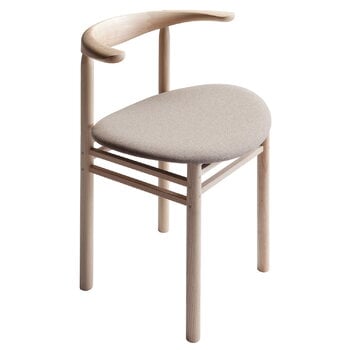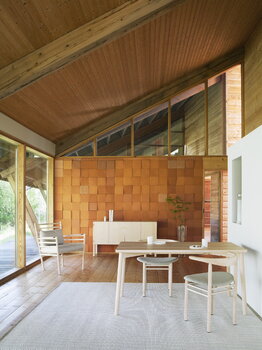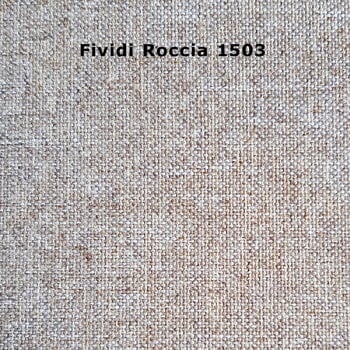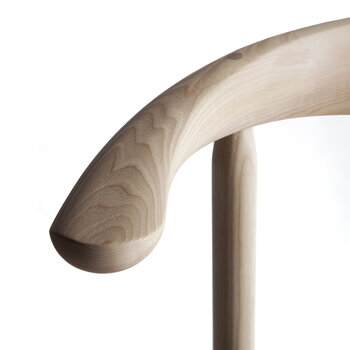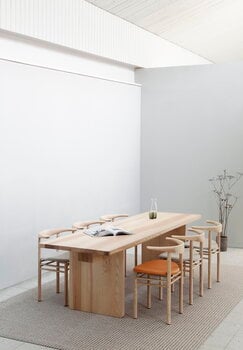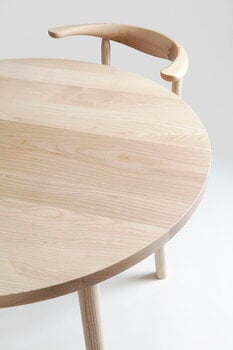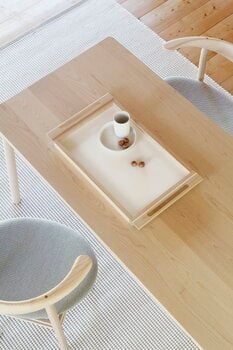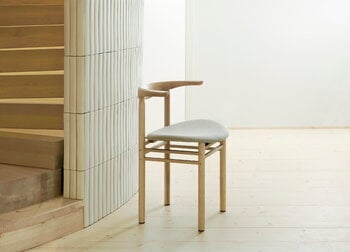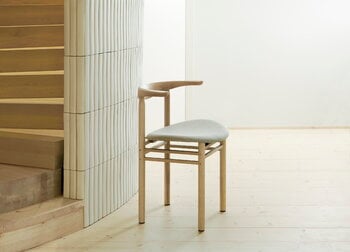Nikari’s Linea chair is characterized by a distinctive organic form created by Rudi Merz in 2009. Made of solid ash, the chair features a beautifully curved backrest that not only pleases the eye with its remarkable joints but also offers comfortable support for the back. Finished with an upholstered seat, the Linea chair is a wonderfully contemporary yet timeless seat suitable for a variety of spaces.
Nikari products are made in Finland using only certified wood.
